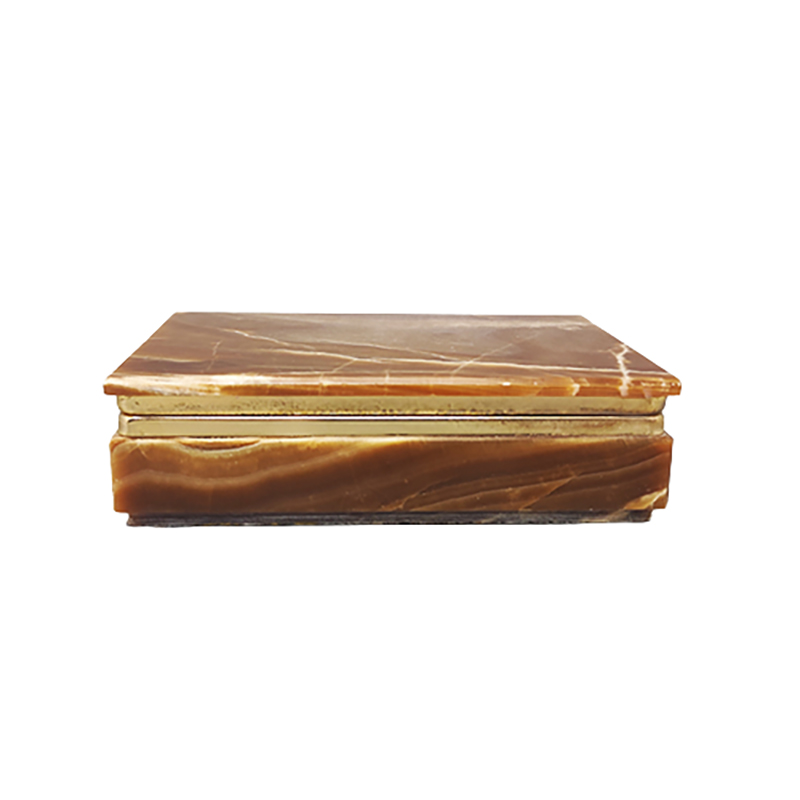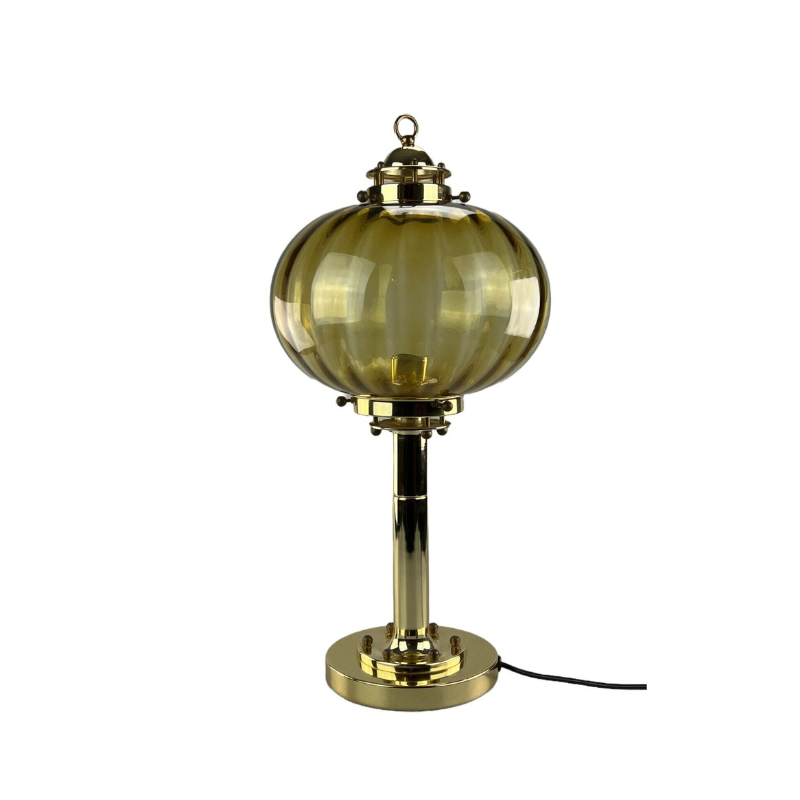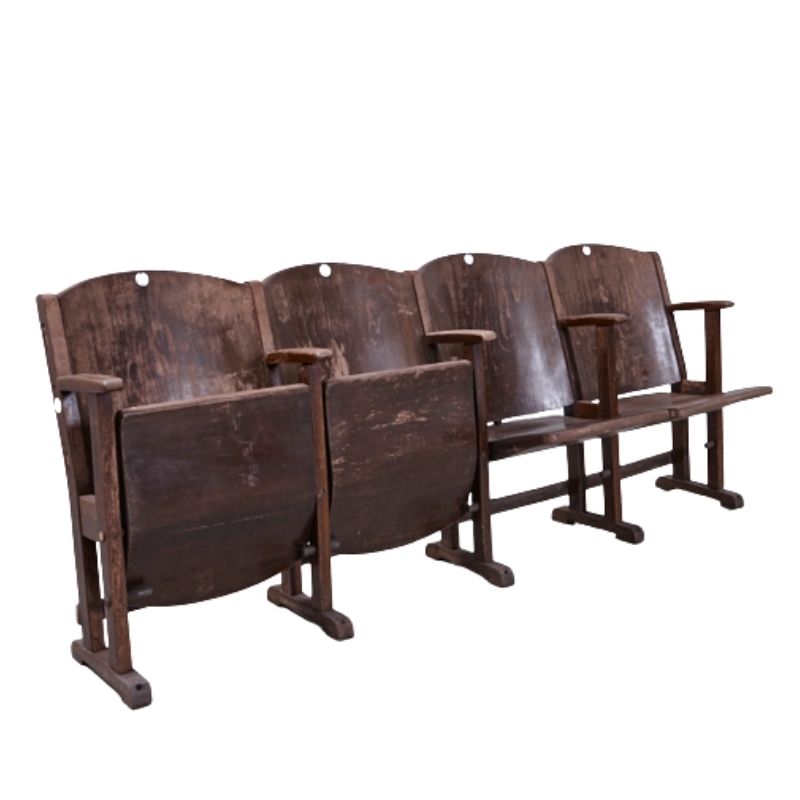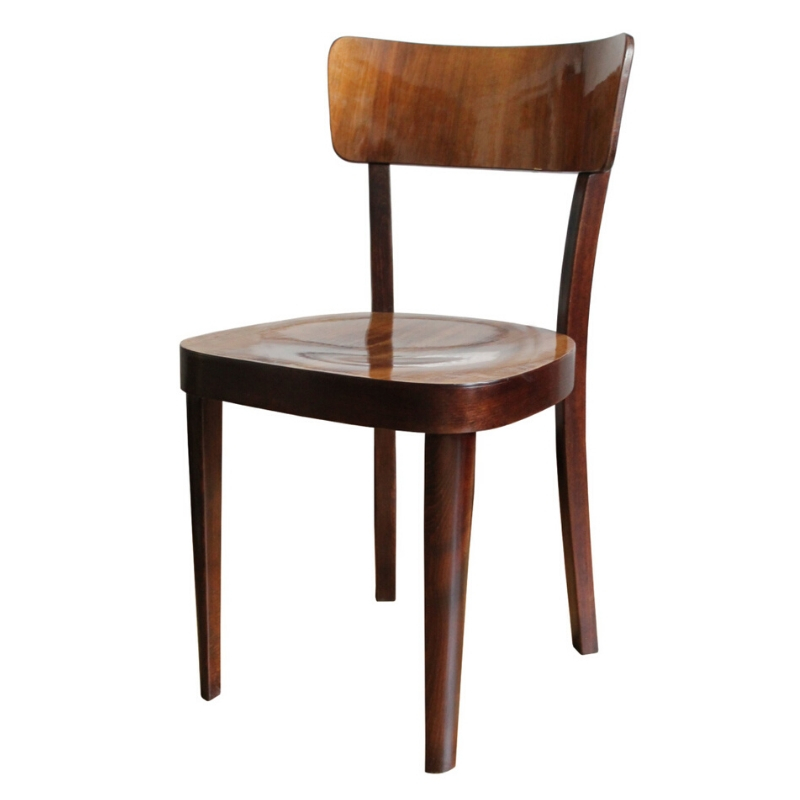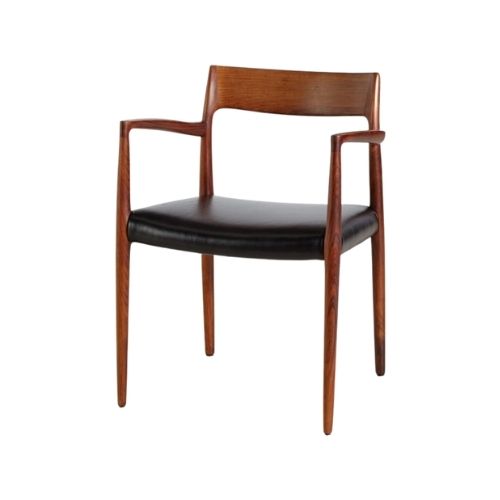Picked up 2 of these this morning. I was pretty sure that they were copies of the original Hans Wegner Round Chair due to the joint between the leg and the seat (pictured). Also - there was no engraved mark or sticker on either chair. With closer inspection, everything else looks perfectly consistent with an early Wegner chair including the rattan / bamboo caning and the chair dimensions. Also the wood seems to be teak (though it could be walnut). Can anyone help me troubleshoot this. I think they're copies, but if so, they are very good, early copies. Thanks!

Wegner
Your chairs appear correct in most aspects. The 3 strips of cane continuing down at the middle of the back seat support are the same as Wegner's. The center stretcher under the seat looks correct too and they put their manufacturers stamp on that piece. The support blocks in the corner where the legs meet the seat rails however, do not appear on wegner's chair. I base these remarks on the excellent photos and diagrams in the Mar./Apr. 1980 issue of 'Fine Woodworking' magazine. I have two of these chairs, but they are the vinyl seated versions and so have no stretcher under the seat. If you could post a straight-down view of the arms, that would help.
Indeed close, but no cigar....
Indeed close, but no cigar. I do always enjoy seeing a "new" vintage replica design, if that makes any sense.
On a small tangent, I just happened to have acquired the aforementioned Wegner Fine Woodworking magazine (in a lot of five that also happened to include the Maloof article from the same year). I was surprised that the author noted that Oregon Pine was used in the Valet Chair. I thought that oak was the only secondary wood to teak. Was there a period where Oregon Pine was a secondary option, or did the author get his woods mixed up?
This thread also reminds me I need to get around to doing my own Round Chair restoration project.
It would be interesting to...
It would be interesting to see what kind of joinery there is on the backrest under the cane wrapping. My understanding is that replicas do not have the fingerjoints (but I am not certain of that).
I have a pair of these caned chairs (marked Johannes Hansen) that I am working on. They both have loose leg joints.
Could it be a furniture repairman added your blocking to strengthen a chair with loose dowel joints? Seems weird to go through so much trouble to make a quite accurate copy, only to put in clunky corner blocking like that. Anyway, it makes sense to me that it might have been added later...
If you peek under the cosmetic rattan strips around the perimeter of the bottom of the chair, do you see other old nail holes that would indicate your chair was re-caned? The other Johannes Hansen chairs I have seen use a cosmetic strip that is made from a much more substantial half-round piece of bamboo, rather than just tacking a flat strip of rattan over the nailed ends of the chair weaving to conceal them.
Maybe I spoke too soon. I...
Maybe I spoke too soon. I just checked my chair and the undersides of the rails have a step cut into them so that the cover strip (bamboo?) is mostly flush with the wood. It appears that detail is present in the OP's chair even if the original caning and cover strips are long gone. If a vintage replica went to that level of matching by including those recessed notches in such a low visibility area, that would be one impressive replica.
There is a poorly driven nail...
There is a poorly driven nail in that clunky corner block. I can't imagine a craftsman who can build that chair, who would choose nails over screws and most tellingly lack the competence to drive a nail properly.
If you can build that chair you can drive a nail.
As tchp suggested I think those blocks are a later addition.
Whether that makes the chair itself a fake or authentic I am not qualified to say.
thanks / the plot thickens
thanks all for your comments. i'm still convinced that these are early repros but the more i examine the corner blocks, the more they look like later add ons.
I checked the joints behind the rattan/caning and they are not finger joints. I read somewhere that the early versions did not have finger joints and wegner used the caning to hide the necessary joint. I only read this in one place and haven't seen that idea corroborated.
I'll post a couple more photos of the bottom and a top down view of the chairs.
the biggest problem i have is the fact that there's no mark under the seat. Seems like every authentic version i've seen has that mark.
Thanks again.
Looking online, I do see...
Looking online, I do see there are numerous references to the early backrests on these chairs not having the familiar fingerjoint, and the cane wrapping having been used specifically to conceal the original joint that was used on these chairs.
So, it motivated me to start unwrapping the backrest on my Johannes Hansen chair, and I see that it has a much more blocky joint, and that the backrest appears to be made of a different wood possibly, like fir, meaning that it was always intended to be concealed behind the rattan wrapping, along with the blocky joint.
Technically, the joint my chair has is still a fingerjoint (I guess, although they may also slightly dovetail together), but it is not the cosmetically appealing version with the elegantly tapering fingers that most people are familiar with.
We just got a pair
... with cane seats and wood (not wrapped) back which are fully marked. I could take detail photos, but I don't know that it would be helpful in figuring out what's up with yours.
It's so strange that it is so very close, but has several details which are odd. The cane seal looks quite old, but it is not woven in the correct manner. Do you see holes from where it might have been done before? Any evidence that the center stretcher was once wrapped at the front and back as it is supposed to be?
The corner blocks could have been added, but it's weird that they are so finely made with a nice quarter round shape, beveled edges, and the center screw countersunk. The tone of the wood even matches perfectly. The nails in them almost look like an afterthought or like they were done by someone other than the person who made the corner blocks.
The shape of the frame is very very close, but if you look at a marked one closely and compare it to yours, your chair has lines that are just slightly more expressive. Even the taper of the legs is a bit more pronounced.
It is shockingly close, and clearly well done, but if I were to bet, I'd put my money on it being a copy rather than some rare unmarked example.
If you need any help, please contact us at – info@designaddict.com



